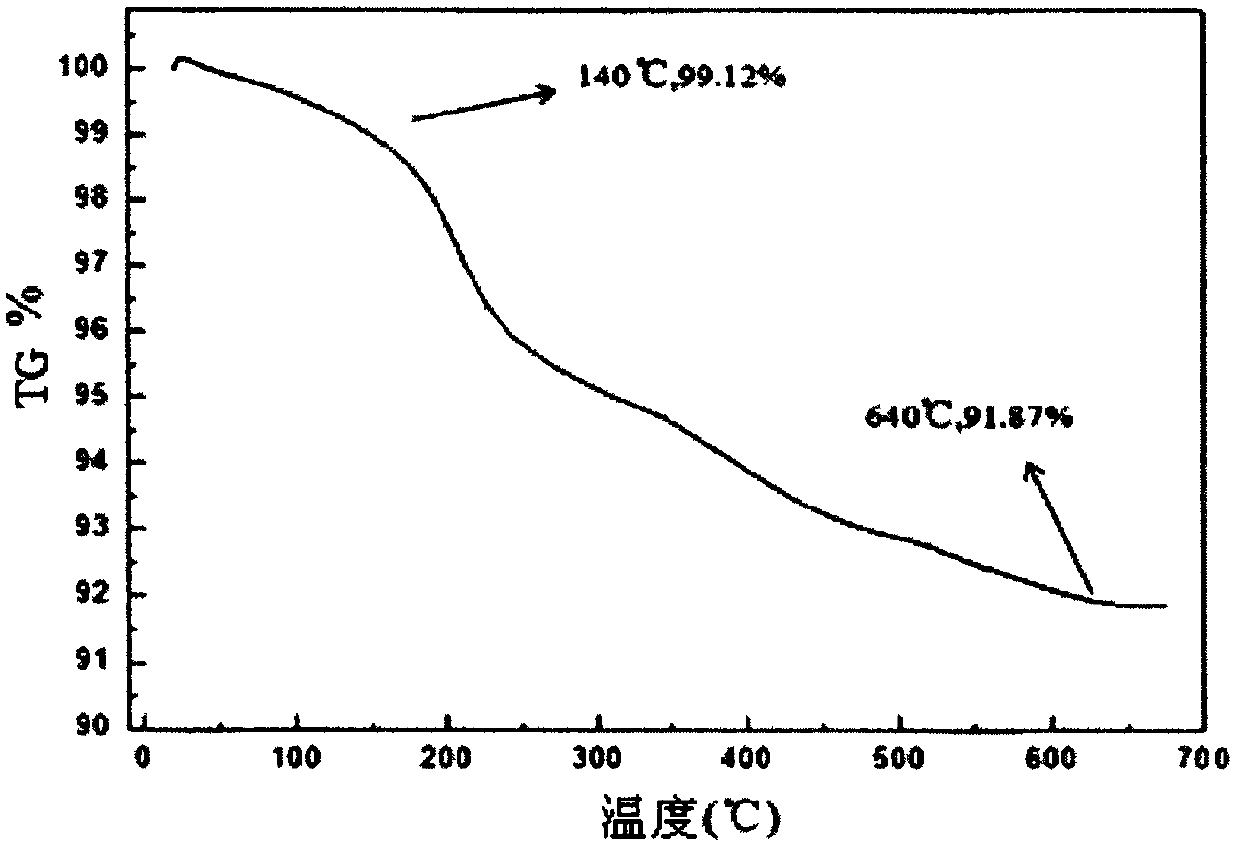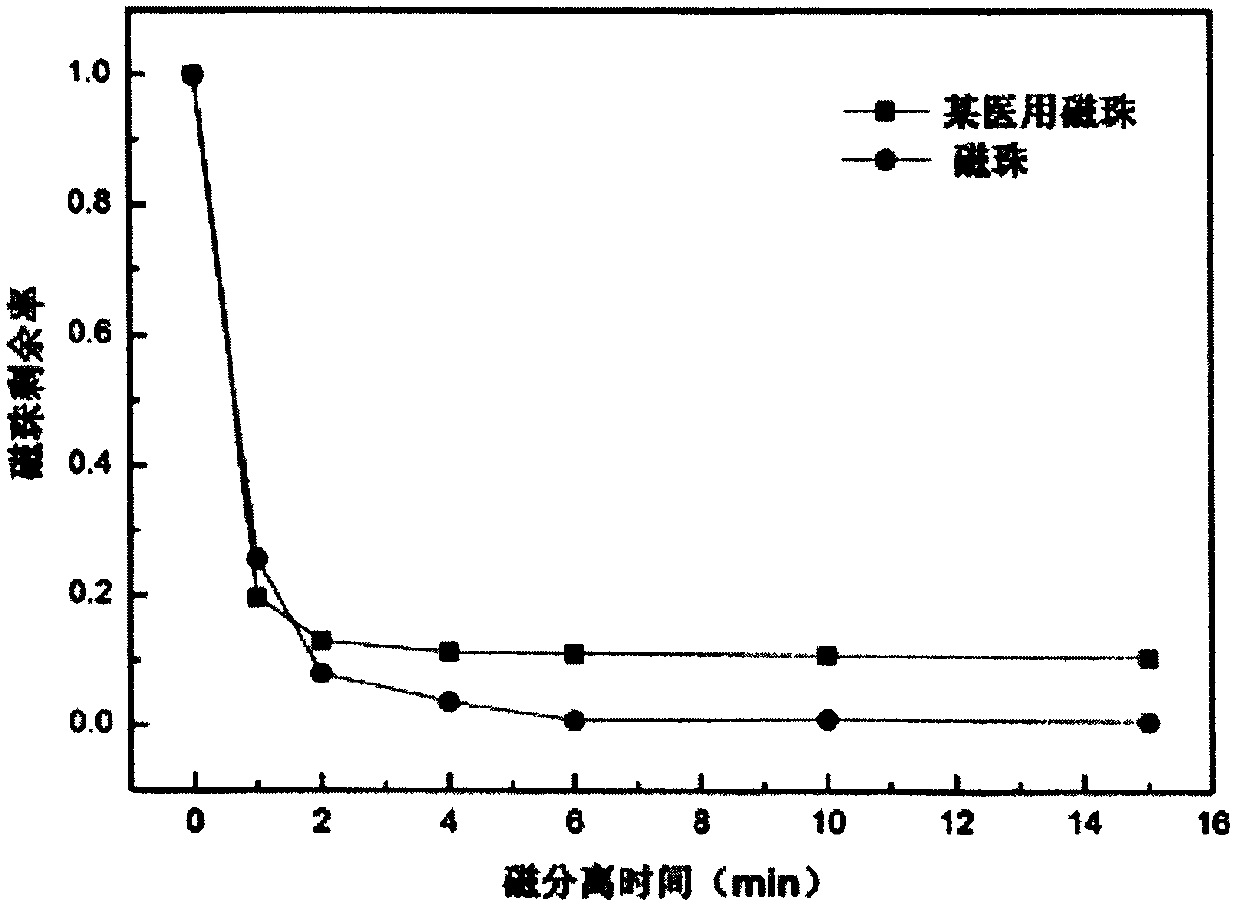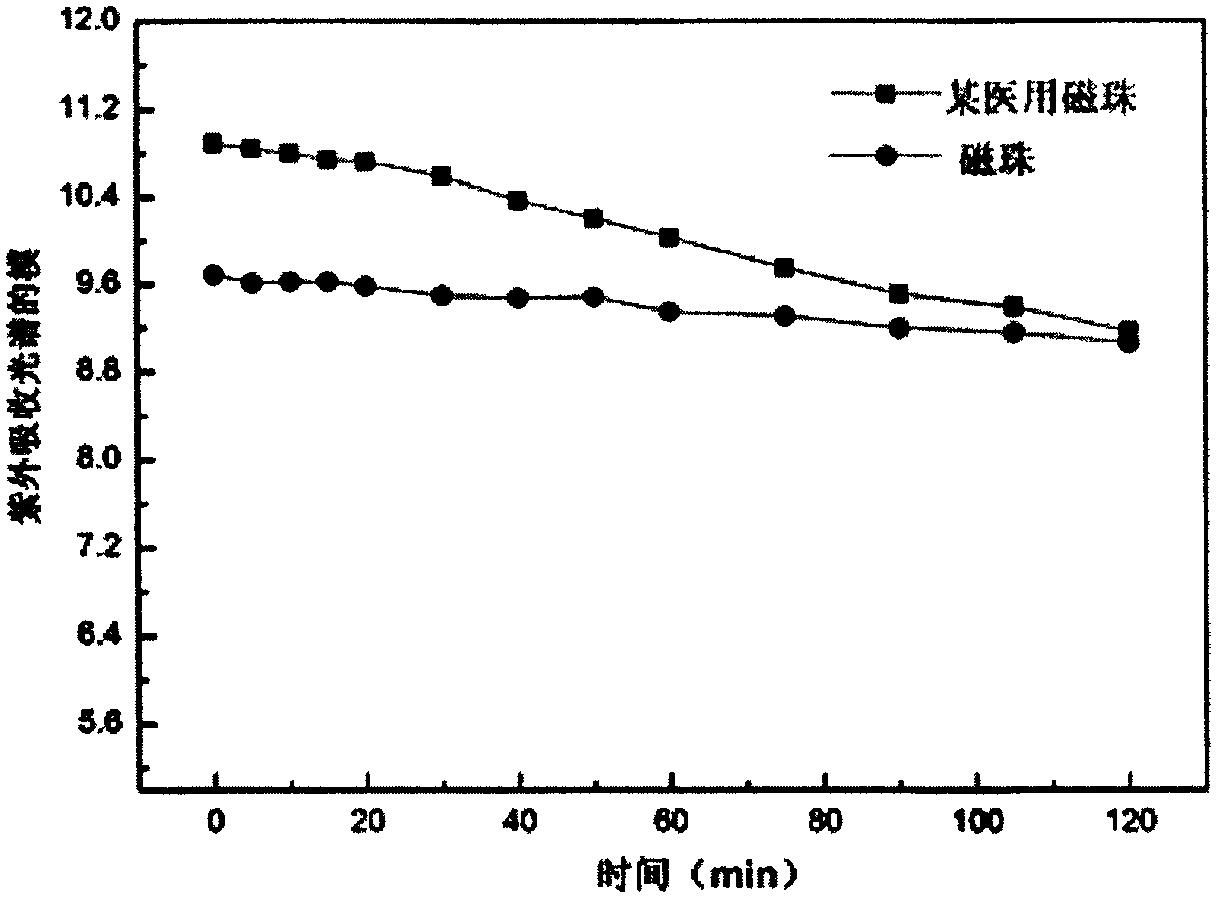A kind of preparation method and application of magnetic beads
A technology of magnetic beads and magnetic nanoparticles, which is applied in the manufacture of inductors/transformers/magnets, magnets, and magnetic objects. Simple method, small size effect
- Summary
- Abstract
- Description
- Claims
- Application Information
AI Technical Summary
Problems solved by technology
Method used
Image
Examples
Embodiment 1
[0032] This embodiment provides a method for preparing magnetic beads, comprising the following steps:
[0033] (1) Preparation of magnetic nanoparticles modified by citric acid: the prepared Fe 3 o 4 The water-based dispersion of magnetic nanoparticles was ultrasonically dispersed for 15 minutes, and 20 mL was placed in a three-neck bottle for deoxygenation with nitrogen for 20 minutes, and then added to a certain amount of sodium citrate solution for 15 minutes to make Fe 3 o 4 The magnetic nanoparticles are evenly dispersed in the system, connect the experimental device, maintain the nitrogen environment, adjust the speed of mechanical stirring to 600rpb, raise the temperature of the water bath to 60°C, stir and react for 1h, use NdFeB magnets for magnetic separation, triple distilled water Wash to remove excess sodium citrate until magnetic separation can not obtain a clear supernatant, and finally re-disperse in 20mL triple distilled water to obtain citric acid-modified w...
Embodiment 2
[0046] The preparation method of a magnetic bead provided in this embodiment is basically the same as the preparation method of the magnetic bead described in Example 1, the difference is that:
[0047] (1) Preparation of surface-modified magnetic nanoparticles with small molecular functional groups: Small functional groups (including hydroxyl, amino, aldehyde, mercapto and carboxyl contained in other carboxylic acids different from citric acid) Molecular functionalization reagents, instead of citric acid in step (1) in Example 1, are used for similar surface modification of magnetic nanoparticles to obtain surface-modified magnetic nanoparticles with different functional groups.
[0048] (2) Preparation of magnetic nanoparticles with surface-immobilized macromolecules: macromolecules that need to be surface-immobilized, including polymer macromolecules, block polymers connected by chemical bonds, proteins, DNA, polypeptides, polysaccharides, etc., will replace this implementat...
Embodiment 3
[0051] The preparation method of a magnetic bead provided in this embodiment is basically the same as the preparation method of the magnetic bead described in Example 1, the difference is that:
[0052] (1) Preparation of magnetic nanoparticles embedded in PEI: Take 80mL of three-distilled water in a 250mL four-neck bottle, pass nitrogen gas to remove oxygen for 20min, connect the experimental device, check the airtightness to ensure good airtightness; Adjust the temperature to 35°C, adjust the speed of mechanical stirring to 300rpb, maintain the nitrogen environment in the four-necked bottle, and accurately weigh 4.05g of FeCl 3 ·6H 2 O and 1.98 g FeCl 2 4H 2 0, join in the four-neck bottle and stir and dissolve for 20min, add a certain amount of polymer macromolecular PEI (Mw=10000) in the ammonia solution of a certain concentration, adjust the rotating speed of the mechanical stirring to 600rpb, slowly add the ammonia diluent dropwise until The pH of the solution was 11,...
PUM
| Property | Measurement | Unit |
|---|---|---|
| particle diameter | aaaaa | aaaaa |
| particle size | aaaaa | aaaaa |
Abstract
Description
Claims
Application Information
 Login to View More
Login to View More - R&D
- Intellectual Property
- Life Sciences
- Materials
- Tech Scout
- Unparalleled Data Quality
- Higher Quality Content
- 60% Fewer Hallucinations
Browse by: Latest US Patents, China's latest patents, Technical Efficacy Thesaurus, Application Domain, Technology Topic, Popular Technical Reports.
© 2025 PatSnap. All rights reserved.Legal|Privacy policy|Modern Slavery Act Transparency Statement|Sitemap|About US| Contact US: help@patsnap.com



